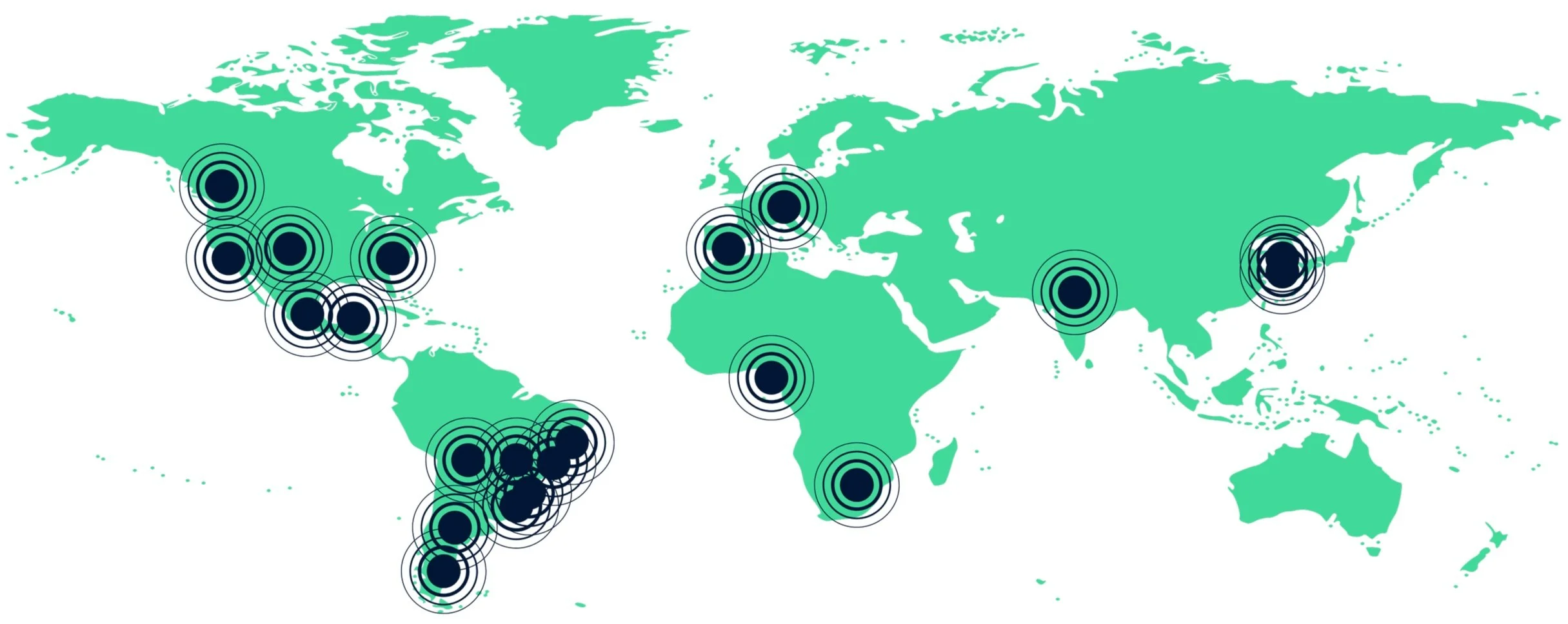The Subnational Methane Action Coalition
Leading the world toward fast methane action
Worldwide, states and provinces have the authority and expertise to slash methane emissions and combat climate change. Members of the Subnational Methane Action Coalition (SMAC) are leading the way.

The Methane Imperative
Methane is a colorless, combustible gas that has caused nearly one-third of Earth’s warming. In the short term, one ton of methane traps 80 times more heat than one ton of carbon dioxide. Since captured methane can be used for fuel, methane solutions are often profitable.
States and provinces are uniquely positioned to lead the fight against methane emissions. SMAC provides a platform that helps governments gain access to technical and policy resources while learning from each other. Joining SMAC is always free.
Members
SMAC members represent more than 200 million people and have a combined GDP of $7 trillion USD.
Africa
Cross River State, Nigeria
Gauteng, South Africa
Western Cape, South Africa
Asia
Chungcheongnam-do, South Korea
Gyeonggi, South Korea
Delhi, India
Beijing, China (Observer)
Europe
Andalusia, Spain
Baden-Württemberg, Germany
Lombardy, Italy (Observer)
North America
British Columbia, Canada
Québec, Canada (Observer)
Alberta, Canada (Observer)
California, United States
Colorado, United States
Maryland, United States
Querétaro, Mexico
Yucatán, Mexico
South America
Córdoba, Argentina
Chubut, Argentina
Espírito Santo, Brazil
Goiás, Brazil
Minas Gerais, Brazil
Pernambuco, Brazil
Rio de Janeiro, Brazil
Rio Grande do Sul, Brazil
Santa Cruz, Bolivia
Methane policy, simplified
Each jurisdiction has different needs. Whether a government is new to methane efforts or already a world leader, SMAC helps officials craft strong methane policies and gain global recognition for their efforts.
Identifying Solutions: Through an extensive network of methane experts, SMAC helps governments build customized methane strategies to meet their needs.
Supporting Monitoring: Through SMAC, governments identify key sources of methane, including through low-cost technologies and publicly available satellite data.
Deploying Projects: Working alongside industry, SMAC tracks and facilitates innovative methane initiatives at oil and gas operations, farms, landfills, and other facilities.
Building Model Policies: SMAC builds international collaborations to exchange model policies, laws, and rules.
Promoting Environmental Justice: Through SMAC, governments are positioned to maximize the social, economic, and health benefits of methane action.


